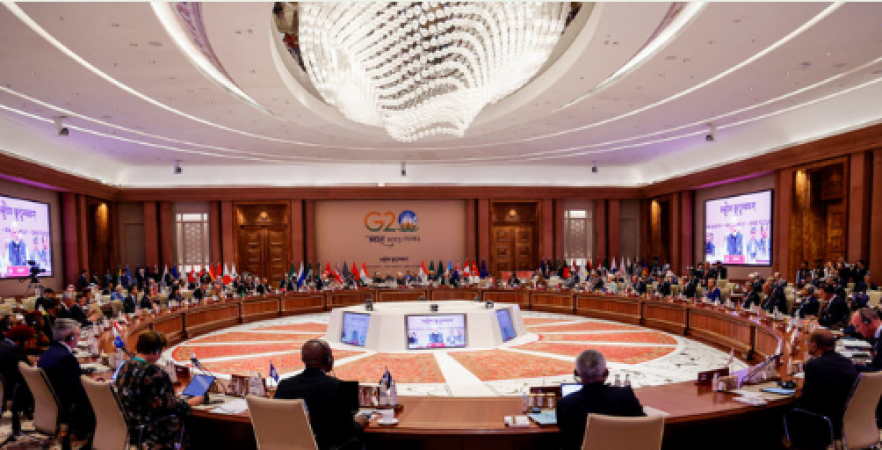
New Delhi: In a crucial development, finance ministers and central bank governors from the Group of 20 (G20) nations emerged from a two-day meeting in Bali, Indonesia, with a consensus on a joint statement regarding the ongoing war in Ukraine.
Initial doubts over the wording of the statement had raised concerns, particularly given the divisions between Western countries and Russia and China over the conflict.
However, the statement ultimately condemned the war and called for an immediate cessation of hostilities while expressing deep concerns about the humanitarian crisis and its potential global economic ramifications.
Also Read: From Nataraja Statue to Konark Chakra, These Highlights Captivated the World at G20
The joint statement issued by the G20 finance ministers and central bank governors did not shy away from addressing the gravity of the situation in Ukraine.
It conveyed a clear message, stating, "We are deeply concerned about the humanitarian crisis in Ukraine and the spillovers to the global economy. We call for an immediate end to the war and urge all parties to respect international law and the principles of the UN Charter."
This unified stance against the war was met with approval by many observers who had feared that the G20 might fail to reach consensus due to the geopolitical divisions surrounding the conflict.
The fact that the G20, a forum that includes countries with divergent interests, could agree on a joint statement amid a major international crisis was seen as a significant achievement.
Also Read: Google Pixel Watch 2 to Launch in India on October 5th, Teaser Confirms
Eswar Prasad, a professor of economics at Cornell University, remarked, "This is a significant achievement. It shows that the G20 is still capable of functioning even in the midst of a major geopolitical crisis."
While the statement unequivocally condemned the war, it notably refrained from naming Russia specifically and did not outline any concrete actions that G20 members would take to address the conflict.
This omission was interpreted as a concession to Russia and China, both of whom had expressed objections to language that they perceived as placing blame on them for the war.
Despite the absence of specific actions, the statement was still regarded as a positive development. It signaled the continued commitment of the G20 nations to work together on global economic issues, even in the face of a significant crisis.
The joint statement also underscored the increasing impact of the war on the global economy. The conflict has disrupted supply chains, triggered soaring food prices, and caused a substantial rise in energy costs. These disruptions are anticipated to have a profound influence on economic growth in the months to come.
The G20 finance ministers and central bank governors recognized the urgency of addressing these economic challenges stemming from the war. The statement implicitly acknowledged the interconnectedness of the global economy, where events in one region can have cascading effects worldwide.
In addition to the joint statement on the Ukraine crisis, the G20 participants discussed a range of other pressing issues, including the global economic outlook, climate change, and financial regulation.
The meeting took place against a backdrop of multiple challenges confronting the global economy, such as the Ukraine conflict, rising inflation, and slowing growth. G20 members acknowledged these challenges and pledged to collaborate in addressing them.
Looking ahead, the G20 finance ministers and central bank governors are expected to convene once more in October. During this meeting, they will delve into strategies to mitigate the economic fallout from the ongoing war.
The discussions held in these forums have the potential to translate into tangible actions aimed at addressing the myriad challenges currently facing the global economy.
Also Read: Former SA Star AB de Villiers Highlights India's Home Pressure Ahead of ODI World Cup 2023
In summary, the recent G20 meeting in Bali, Indonesia, marked a significant moment in the context of the ongoing Ukraine crisis. The consensus reached on a joint statement condemning the war while acknowledging its global economic implications demonstrated the forum's ability to find common ground amid divisive geopolitical circumstances.
As the world watches, it is hoped that this unity will lead to effective measures to address the complex challenges posed by the conflict and its reverberations on the global stage.